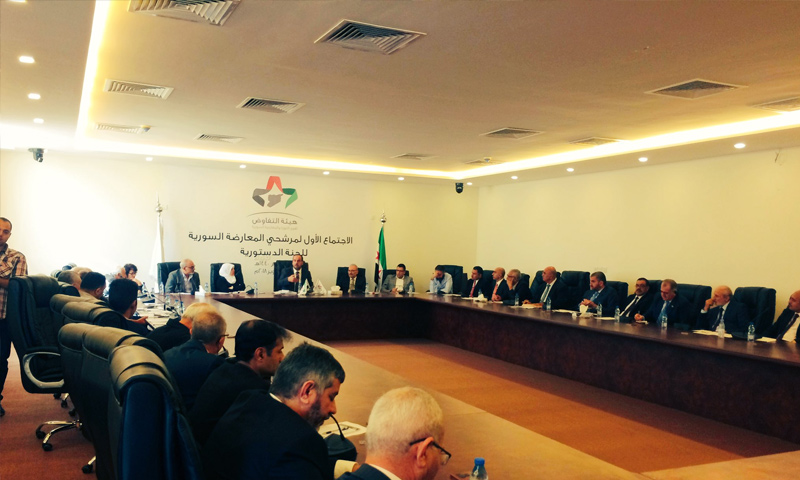The head of the Syrian High Negotiations Committee, Nasr al-Hariri, said that the committee will crystallize a united position around what is happening in Idleb on Tuesday.
Hariri told the Al-Sharq Al-Awsat newspaper on Jun. 17, 2019, that there was a state of anger inside the committee about what was happening to Idleb, and that the committee was in the process of crystallizing a united position around the issue.
The Negotiations Committee had begun its periodic meeting yesterday in the Saudi capital Riyadh and had agreed to name the session for the martyr Abdelbassat al-Sarout, who had died from his wounds last week.
Hariri said that the Syrian regime and its allies dismissing a political solution explained what was currently happening in Idleb, stressing the oppositions adherence to a political solution in Syria.
Idleb province and the Hama countryside have been witnessing a military escalation by Assad’s forces with backing from Russian warplanes since February, which has killed hundreds of civilians and wounded thousands.
According to statistics from the Response Coordination Group, 769 civilians have been killed, including 221 children and dozens wounded.
The team recorded the displacement of 551,877 people since the start of third military campaign by the regime and Russian forces in February on the Idleb and Hama countrysides.
Hariri said that the committee meeting’s discussion focused on the tripartite war that Russia, Iran and the Assad regime were carrying out in Idleb, saying the opposition had advanced, defeated regime and Iranian forces and gained new territory.
The committee also discussed the racist campaign against Syrian refugees in Lebanon.
Hariri said that the committee would develop a plan to confront the campaign by Hezbollah and the Syrian regime as well as to evaluate the contact and meetings the committee had held with various bodies and Syrian revolutionary organizations inside the country and in the countries of exile.
In light of calls for them to return to the country, Syrians are facing a series of Lebanese measures and restrictions, including the closing of Syrians’ shops in April by Lebanese General Security under the pretext of not having work permits.
The Lebanese Foreign Minister Gebran Bassil recently stirred controversy after he published a tweet saying that “It is normal to defend the Lebanese labour force against any other foreign labour, whether it be Syrian, Palestinian, French, Saudi, Iranian or American, the Lebanese come first!” He was accused of racism.
This article was translated and edited by The Syrian Observer. Responsibility for the information and views set out in this article lies entirely with the author.


